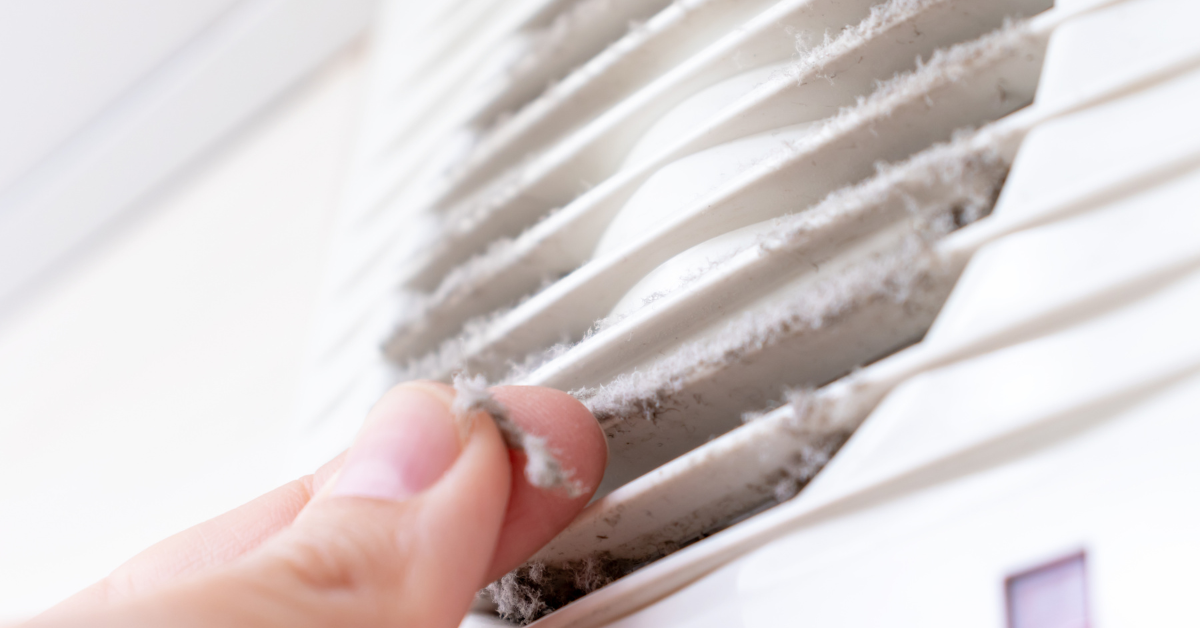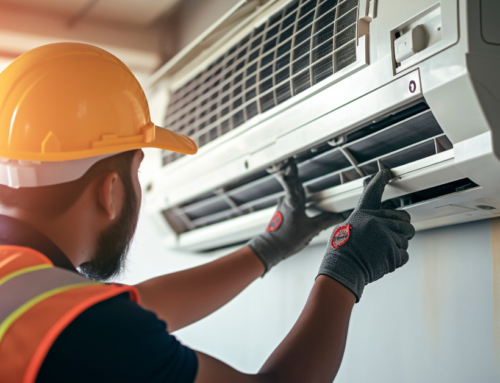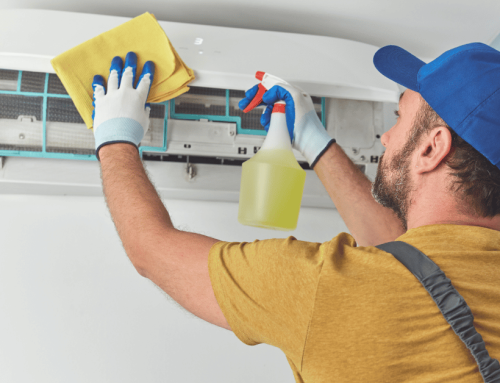Spring in Denver, Colorado, heralds the appearance of an air conditioning foe: pollen! Films of pollen often form along pathways, particularly near pine trees. Until late spring, cedar and cottonwood are at their peaks, producing nearly undetectable vapors that can penetrate your airways. Grass pollen is also prevalent in the late spring. As a result, your HVAC air filter could become packed with pollen in a matter of days if you live in a Denver area close to these pollen sources.
According to the Department of Energy (DOE), your HVAC system’s effectiveness drops dramatically when its air filters are clogged. Also, the evaporator coil’s ability to absorb heat is diminished as debris collects on the coil when airflow is restricted. The DOE also notes that by swapping a clogged filter for a spotless one, you can save anywhere from 5% to 15% on your monthly energy bill.
If your HVAC system acts up during the springtime and you’re not sure why, your system may have a soiled air filter. The following is a list of clogged air filter symptoms to look for and what you can do to fix them.
1. The Debris and Pollen in Your Home Has Increased
If you notice more debris, dust, or pollen in your home for no apparent reason, a dirty air filter could be to blame. Air purification is made easier with the aid of a filter. HEPA filters, according to the Environmental Protection Agency (EPA), can trap and eliminate particulates as small as 0.3 microns, including dust, pollen, and other allergens. If your air filter becomes soiled, it won’t be able to serve its purpose. As a result, the air conditioner brings in outside air and distributes it throughout your home, along with debris and dust.
Examine the air filter to see if it’s clogged. If the air filter is dirty, it needs to be cleaned or replaced. Inspecting your HVAC’s air filter should be an ongoing part of your housekeeping routine. In this manner, you won’t have to guess if the filter needs to be cleaned or replaced. It’s always best to contact a professional for HVAC matters, so give our NATE-certified HVAC technicians a call if you need your air filter inspected, cleaned, or replaced.
2. Respiratory Issues
Bacteria and fungi flourish in an HVAC system with filthy air filtration. Mold starts to form as a consequence of this. When mold and germs are dispersed through the air, it becomes difficult to breathe. Your risk of contracting a respiratory infection rises if your home has a moldy air conditioner. An itchy larynx and coughing are some clogged air filter symptoms caused by mold exposure.
Schedule regular HVAC system maintenance to avoid respiratory illnesses.
3. Poor Indoor Air Quality
If your air filter is impure, your vents and ducts will be too. You are exposed to more allergens, like pollen, and other unpleasant particulates when these become soiled. This reduces the quality of the oxygen you breathe in your home and makes staying there unpleasant. According to the Centers for Disease Control and Prevention (CDC), those who suffer from hay fever or allergic rhinitis may experience symptoms such as a runny or congested nose when exposed to pollen. Allergic conjunctivitis can also develop in others who come into contact with pollen.
Clogged air filter symptoms like this can be avoided by regularly replacing the filter, especially if there are numerous people residing in your home.
4. A Musty Odor
A musty odor is often the result of a blocked or soiled filter in an air conditioner. This is because when the filter is blocked, air cannot circulate easily throughout the system, resulting in restricted air flow.
To prevent this, inspect your air filters frequently and change them every three to four months, or whenever they become visibly filthy. You can determine how often to change your air filter in your HVAC manufacturer’s manual.
5. Decreased Cooling Efficiency
Air conditioning efficiency decreases as your air filter accumulates grime. This happens because the cooling coils may attract some of the harmful particulates in the air if the air filter is soiled. Ice will in turn form on the coils and the turbines. Your outdoor air conditioner will display this. However, the primary problem is that the energy spent on cooling your house is instead freezing the water vapor around your HVAC.
6. An Overheated HVAC System
It is normal for an HVAC system to be slightly heated, but if it is too hot for contact, something may be awry. Overheating occurs because the air conditioner has to work harder to drive air through a blocked filter. The tripping of your circuit switch is another indication that your air conditioner is overheating. Your air conditioner will cut off as a safety measure if the current going through it becomes excessive. Be on the lookout for a hot capacitor and compressor as well.
If you suspect overheating, you need to ensure that the air filter is clear. This is important, as a dirty air filter not only makes your HVAC system work harder, but it also shortens its lifespan.
Remember, there’s no need to wait for these symptoms to become evident. Schedule an appointment with us for our preventative maintenance services. Regular professional HVAC inspections will help detect problems before they lead to other expenses.



